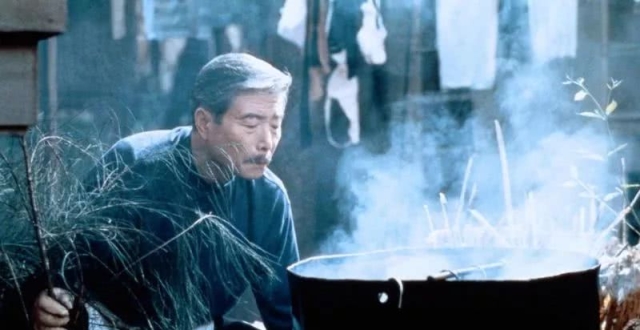

“人家幫我,永志不忘;我幫人家,莫記心上”
“I will never forget a favor I’ve received, but I will forget all the favors I’ve done.”
“人家幫我,永志不忘;我幫人家,莫記心上。”
“一隻腳踩扁了紫羅蘭,它卻把香味留在那腳跟上,這就是寬恕。”
大乘佛教隻講報恩,不講報怨。一般人做不到的話,也應盡量少一點報怨,多一點報恩。
Mahayana Buddhism stresses returning kindness and never seeking revenge.
他人若對自己有恩惠,要時時想著“滴水之恩,當湧泉相報”。
When you owe a debt of gratitude, always think,“For each tiny drop of kindness I receive, I will return a gushing river.”
正如著名數學家華羅庚所說:“人家幫我,永志不忘;我幫人家,莫記心上。”
The mathematician Hua Luogeng said,“I will never forget a favor I’ve received, but I will forget all the favors I’ve done.”
而他人與我有仇怨,則應盡快忘掉,不要耿耿於懷、記恨在心。
Similarly, if others hold animosity toward you, forget it as soon as possible, and avoid obsessing over it or taking it to heart.
有些心量寬廣的人,對別人的傷害,不但不記恨,反而還會心生感恩。
Good-hearted people try never to hold grudges against people who hurt them.
就像美國的羅斯福總統,有一次他家中失竊,被偷了許多東西。一位朋友聞訊後,忙寫信安慰他。
羅斯福在回信中寫道:“謝謝你的來信,我現在很好,非常感恩:第一,賊偷去的是我的東西,而沒有傷害我的生命;第二,賊隻偷去我部分東西,而不是全部;第三,最值得慶幸的是,做賊的是他,而不是我。”
對任何一個人來說,失竊絕對是件不幸的事,而羅斯福卻找出了感恩的三條理由,實在令人歎服。

這一點,在大乘佛教中也體現得淋漓盡致。古代就有一個故事:
An ancient Mahayana Buddhist story illustrates the wisdom of this.
一天傍晚,有個和尚在返寺途中,突然遇上傾盆大雨。雨勢滂沱,看樣子短時間內不會停,
One evening, on the way back to his monastery, a monk was caught in a rainstorm, with no sign that it would let up.
和尚見不遠處有一座莊園,就想去借宿一晚,避避風雨。
The monk saw a large house nearby and wondered if he might be allowed to stay there for the night.
莊園很大,守門的仆人見是個和尚敲門,問明來意後,冷冷地說:“我家老爺向來與僧道無緣,你最好另做打算。”
When the monk rang the bell at the gate, a servant came to answer. After asking what the monk wanted, the servant replied coldly,“My master has no interest in monks. You’d better find someplace else.”
和尚懇求道:“雨這麽大,附近又沒有其他人家,還是請你行個方便。”
The monk then said,“It’s raining so hard, and there are no other houses nearby; would you please do me this one favor?”
仆人說:“我不能擅自做主,要進去問問老爺的意思。”
The servant replied,“I can’t make this decision. I will have to ask my master.”
仆人入內請示,一會兒出來,說老爺不肯答應。
He went to ask his master and reported back to the monk that the master would not allow him to stay.
和尚只好請求在屋簷下暫歇一晚,可仆人依舊搖頭拒絕。
The monk begged to stay under the eaves for one night, but the servant still shook his head.
和尚無奈,便向仆人問明了莊園老爺的名字,
Having no other option, the monk took his leave, but he first asked for the name of the servant’s master.
然後冒著大雨,全身濕透奔回了寺廟。
He then rushed back to the monastery in the rain and arrived completely soaked.
三年後,莊園老爺納了個小妾,寵愛有加。
Three years later, the wealthy owner of the mansion fell deeply in love with a woman and took her as a concubine.
小妾想到寺廟上香祈福,老爺便陪她一起出門。
One day, she asked if she could go to the monastery to offer incense and pray for blessings, and the owner went with her.
到了廟裡,老爺忽然看見自己的名字被寫在一塊顯眼的長生祿位牌上,
At the monastery, he happened to see his name on a very conspicuous plaque with a prayer for his longevity.
心中納悶,就向一個小沙彌打聽這是怎麽回事。
He was very surprised and asked a novice monk about it.
小沙彌說:“這是我們住持三年前寫的。
The novice said,“Our abbot wrote this three years ago.
有天他冒著大雨回來,說有位施主和他沒有善緣,所以為他寫了這塊長生祿位。
One night he came home in a rainstorm and told us that he hadn’t made a good connection with a benefactor, so he wrote this prayer for him.
住持天天誦經,回向功德給他,希望能和那位施主解冤結、添些善緣,並讓他早日離苦得樂。
Since then, he has recited sutras and dedicated merit to him in the hope of disentangling this enmity and with the wish for him to be free from suffering and obtain happiness.
至於詳情,我也不是很清楚……”
If you want more details, then I will have to check . . .”
莊園老爺聽了這番話,當下了然,心中既慚愧又不安。
The wealthy man realized what had happened and felt ashamed.
後來,他便成了這座寺廟虔誠的功德主,香火終年不絕。
He went on to become a devoted benefactor of the monastery, making offerings year round.

這是一個改造“惡緣”的故事。
This is a story about fixing a bad connection.
試問,我們遇到這種情況,會不會這樣做呢?
Would you have done the same?
當別人不幫你、甚至傷害你,你還願不願意關心他,用三年時間為他念經加持呢?
When others refuse to help you or even hurt you, are you still willing to extend goodwill to them or spend three years reciting sutras for them?
所以,在大乘佛教中,對怨敵不但不能報怨,還要想辦法施恩於他。
The point is that in Mahayana Buddhism, we don’t take revenge on an enemy; we put our efforts into doing favors instead.
正如安德魯·馬修斯所說:“一隻腳踩扁了紫羅蘭,它卻把香味留在那腳跟上,這就是寬恕。”
As Mark Twain said,“Forgiveness is the fragrance that the violet sheds on the heel that has crushed it.”
索達吉堪布《苦才是人生》
Khenpo Sodargye《Tales for Transforming Adversity》
猜您還喜歡這些
一








